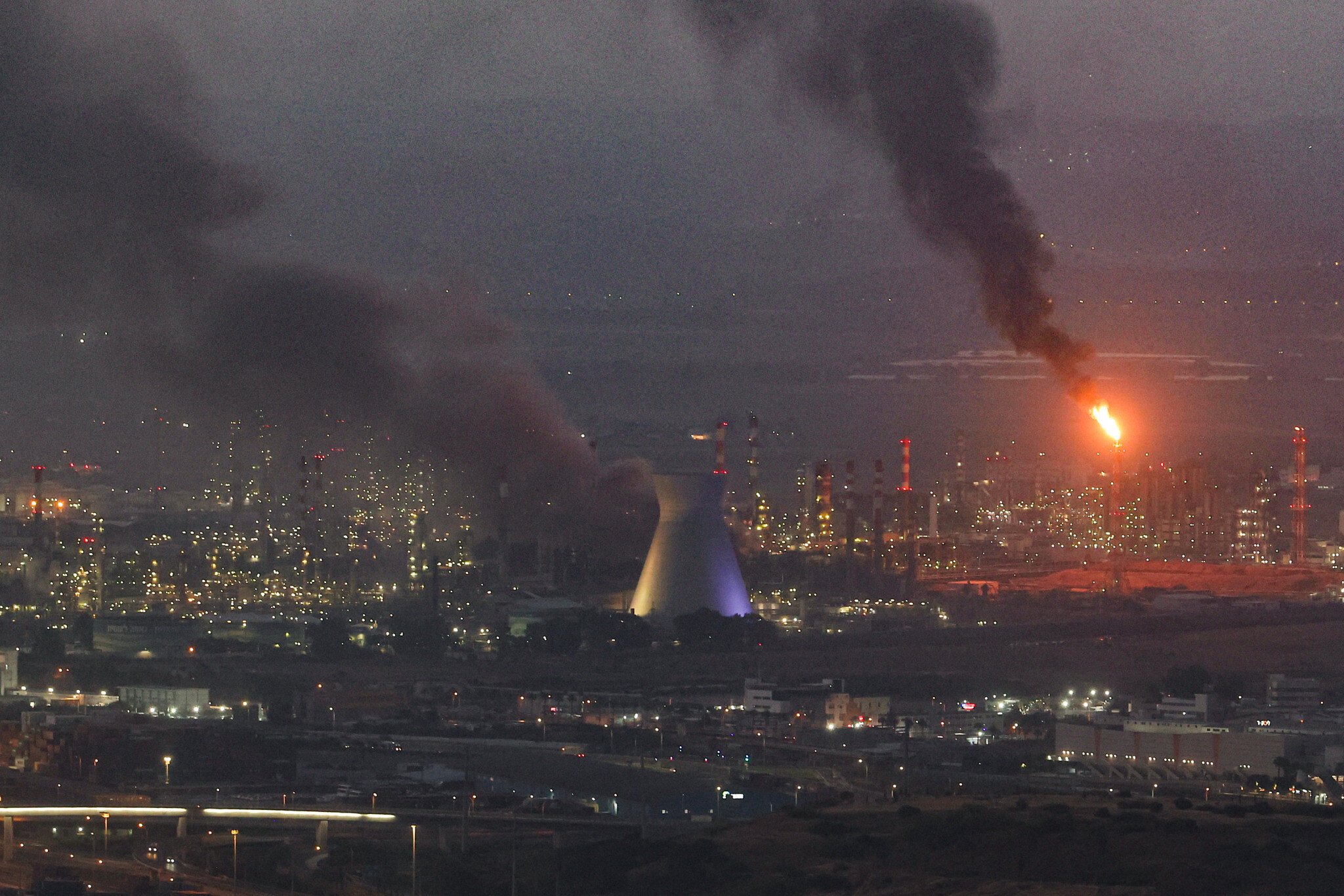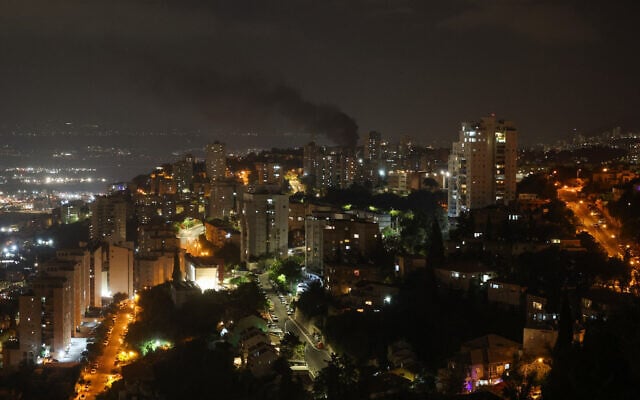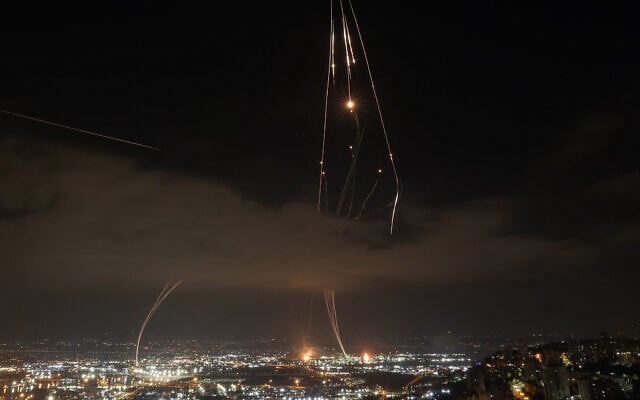



An Iranian ballistic missile that killed three people in Haifa overnight hit the Bazan oil refinery complex in the northern city, Israeli media reported, as it was permitted to publish on Monday evening.
It was one of several deadly impacts caused by a ballistic missile barrage in the early hours of Monday morning. Four people were also killed in Petah Tikva, and another in Bnei Brak.
Haifa Mayor Yona Yahav had confirmed that three people were killed in the northern city, but initially only told Channel 12 news that they had been working at a facility “that’s very important to us in the area, which we would be happy if it closed and left.”
Only hours later was the news that the missile had hit the oil refinery complex permitted for publication.
Rescuers attempted for hours to reach the three missing people, who were buried under rubble during the attack on the northern city. A fire also broke out at the location, complicating rescue operations.
According to Haaretz, the fire hadn’t been brought under control as of Monday afternoon, and it was unclear when it would be.
The three weren’t killed in the initial missile impact, Haaretz reported, but in the subsequent fire. At first, rescuers had been able to communicate with them, the report said, but they lost contact early on in the rescue mission, and fear for their well-being grew as the hours wore on.
It is believed that the cause of death for all three was suffocation, as well as the extreme heat from the fire.
Their identities have not been made public, but the news outlet reported that all were residents of Haifa and the nearby Krayot. It said two other workers had been with them when the missile struck, but managed to escape with light injuries.
A ballistic missile attack a night earlier had also caused “localized damage” at the oil facility.
The facility, home to a distinctive cooling tower that looms over the densely populated Haifa Bay, has for years been threatened with attack by Israel’s adversaries, including Iranian proxy Hezbollah. It has never been known to have suffered a direct hit in the past.
In October, Hezbollah published a video purporting to show one of its drones flying over the refinery site and other sensitive installations in the area.
Residents, environmental activists and others have long lobbied for the Bazan facility to be shuttered and moved elsewhere, due to both the heavy pollution it causes to the area and fears of disastrous consequences should it be struck.
In 2022, the government voted to relocate the facility by 2030. Work on the removal of an array of large oil tanks adjacent to the site was set to begin this year.
Voicing the public’s discontent with the situation, Haifa Mayor Yahav told Army Radio on Monday that the government “needs to be brave and take these factories out of residential areas.”
Although the missile strike itself occurred shortly after 4 a.m., it took more than 12 hours for media outlets in Israel to be granted permission to publish any details from it, beyond reporting that three people were killed by a missile strike in Haifa overnight.
International news outlets, meanwhile, were able to report on the location of the strike, and several news outlets, including Al Jazeera, which is banned from the air in Israel, were airing footage from the scene not long after the attack.
Thus, Israelis were the last to know about the hit at the oil refinery complex.
National Security Minister Itamar Ben Gvir pledged on Monday to crack down on foreign media for broadcasting the location of missile impacts, citing assessments that they put lives at risk by allowing the Iranians to better triangulate their fire.
“Broadcasts that show exactly where the missiles land on the State of Israel are a danger to the security of the country and I expect that anyone who does this will be treated as someone who harms state security,” the ultranationalist minister said.
His office also announced that officials from the Communications Ministry, along with the police, would track down the source of what was thought to be an Al Jazeera broadcast in the Haifa area.
It said, however, that the reporters and crew at the scene were not with Al Jazeera reporters, but rather “other foreign broadcasting channels, for which there is no blanket prohibition on filming — as long as they did not violate censorship regulations.”
The Israel Police had said in a separate statement that officers were sent to clear international journalists who had been broadcasting live missile impacts in the Haifa area, which, in addition to being the home of the oil refinery, also hosts a major port and a naval base.
Sam Sokol contributed to this report.


